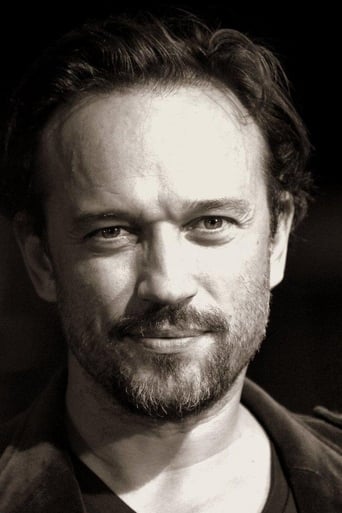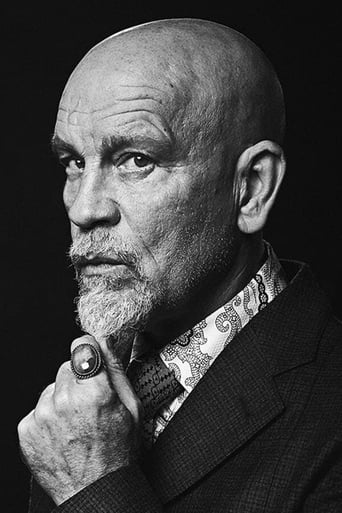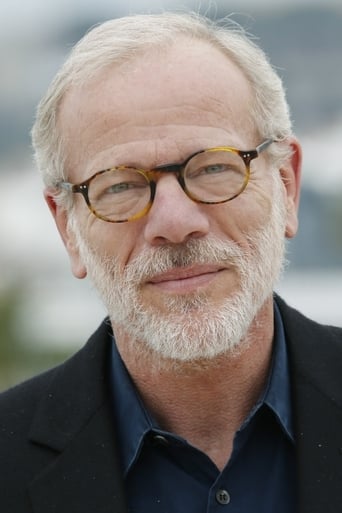CommentsXp
Best movie ever!
Comwayon
A Disappointing Continuation
SparkMore
n my opinion it was a great movie with some interesting elements, even though having some plot holes and the ending probably was just too messy and crammed together, but still fun to watch and not your casual movie that is similar to all other ones.
Fairaher
The film makes a home in your brain and the only cure is to see it again.
gridoon2018
....and definitely not for me. Completely impenetrable to anyone not familiar with the book it was based on (none of the characters are introduced, some are barely differentiated), and thoroughly unengaging. For a film that centers so much on the importance of memory, it tells (in a manner of speaking) the story of a life that's hardly worth remembering; Proust himself is a boring character, and so is every other person he meets! The film is filled with famous actors, but none of them make much of an impression (with the exception of John Malkovich, who is rather ridiculous). And even the sumptuous production values are not any higher than those of a typical "Poirot" (David Suchet) episode. Raoul Ruiz does some of his customary amazing camera tricks (he is a virtuoso), but with this film time is only lost, not regained. * out of 4.
chaos-rampant
Ruiz was quite something back in the 80's, one of the most promising filmmakers I have recently discovered. He made films that throbbed with magic volition, with steps travelling inwards to the place where images are born. It was a dangerous cinema, sultry with the impossible.Then came the second phase, the period of maturity as it were. More prestigious films starting in the mid-90's, starring actors of standing (Mastroyanni, Huppert, here Deneuve and Malkovich) and with some clout of respectability. Watching these makes me cherish so much more the spontaneous upheaval of Three Crowns or City of Pirates.So, this is the landmark film of that second phase, a bulky, sprawling film about French writer Marcel Proust and his work. About sprawling deathbed recollections of a life lived, arranged into a story about stories in an attempt to reveal something of their machinations (and ours in weaving them in the mind, before or after the event).It is a noble effort, with multiple points of interest.Oh the sets are sumptuous, roomfuls of an impeccably dressed society at the doorstep of disaster—WWI is booming away in close proximity—who mingle in coquetry at the clinking sounds of fine glassware. Vice as the last means of sating a self that can never seem to please itself. Bunuel stuff.Charmingly amusing tidbits abound, sure—a scene at the funeral, for example, of a decorated general, whose wife takes solace in a stash of letters she discovered written by the deceased brave. We know, of course, that the love pouring out of them was no doubt intended for his secret homosexual lover.Now all of this as memory, with the narrator present and included in the scene of it. And then a camera—the internal narrator of memory—that introduces the distorted distance of time, this is quite marvelous, as actually reordering reality—furniture move around on whims, our narrator. Fine stuff so far.But, this really falls with Proust's ideas on the role of fiction, the thinking man so hopelessly removed from the actual, tangible things of life, that he can only find solace in turning them to their spiritual equivalents. Who instead of loving, can only write about love; who wastes the manifold possibilities of 'now!' in tinkering with dead time.Earlier filmmakers astutely exposed this destructive facet for what it is; a chimera of the mind that traps the soul in old films of memory. Resnais in his fascinating overall project about memory, Antonioni in Blowup, earlier yet it was film noir. Beckett has captured the dissication better than anyone, pungent stuff his. Ruiz by contrast romances the idea as though it was a pleasant stroll. He romances it so earnestly that it drains his entire film.It is all so fine—like the glassware—so refined and pliable with some grace of apparent form. But a form refined to the point of ornament and sofness, mere trinket that is hollow and devoid of life. No other filmmaker once promising I can think of, matured into so much indifference.
writers_reign
Adapting Proust for the screen is akin to training a dog to walk on two legs, what matters is not how well you succeed but that you attempt it at all. To make it even more difficult Ruiz has elected to concentrate on the last volume of the magnum opus where all the characters of the first six volumes come together in his imagination as the narrator lies on his deathbed. Ruiz does what he can and offers some opulent settings, stunning camera work and first rate performances which is what you would expect when you are employing Manu Beart, Catherine Deneuve Pascal Greggory and John Malkovich buy even the supporting players are excellent and though it is a great help if one has read In Search Of Lost Time it is possible to enjoy this as a one-off.
Oslo Jargo (Bartok Kinski)
This film at best, is nothing but amateurish detritus which not only bores the viewer but makes him contemptuously dislike all forms of snobbery or upper middle class portraits.I've read a few of the other reviewers who attempt to become apologists for the director's lack of talent at establishing even a modicum of interest, they say if you haven't read Proust then you will have a difficult time comprehending this, which in itself is entirely fatuous and pomp. Imagine everyone having to read one of the most lurid and over-rated books of the 20th century to see a film which should substantiate itself. What an exaggerated claim. There's no place for "intellectual hubris" or their own "in-group manifesto" here.I had high hopes for this film actually but after the first hour I saw that it was devoid and lacking any duality which would allow us to reflect on what is occurring. It is played by rigid, high handed oafs who are spoiled to begin with.Most of the first hour is infested by artless vignettes which are probably the deluded Proust's memory, and they are reworked in such a disordered way that what comes out is merely a bunch of meaningless, trite and vacuous scenes with banal jargon, not only because they hold absolutely no interest for us, but because they do not invite a further contemplation of what 'time' was to Proust, imagine listening to a bunch of snobs talk about the weather, well, that is what this basically is, how philosophical can one get from that point of reference? It begins to wear thin after the first scene and you pray that there will be no more discussions by those prosaic characters. And it doesn't help that Proust himself is an insipid dandy who parades around in his best suits with his neatly trimmed moustache and becomes a voyeur, if you are asleep already, I don't blame you.Many of the scenes deal with characters which are entirely void of any human warmth or expression, they are petty aristocrats, snobs who sit and drink tea and eat stuffy food while looking down at the poor. They are perverts who visit homosexual brothels and think themselves noble because they hold high office positions during the war while the common man spills his guts out at the front lines. This is a complete waste of time!Malkovich is even an absurd caricature in here, and his little dubbed French voice is entirely insipid. I laughed at most of this. We learn that he is a libertine who likes to visit male brothels and be whipped by sincere proletarian scum, wow, what a revelation on the mystery of human existence. From the looks of the period pieces and the arrangements, it was expensive but that doesn't carry a film with people walking around with no reference to the viewer. Film is supposed to move us in a way, either disgust us or interest us in some form of merit which it presents itself to us in human understanding but boredom to me is no artistic achievement. Don't even bother with this pretentious and ennui filled work.






